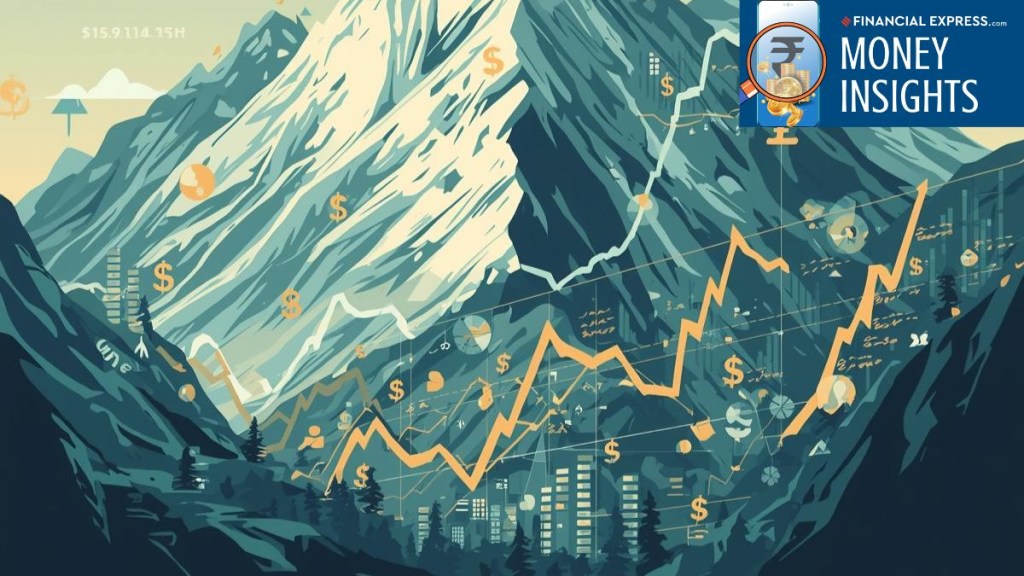Mount Everest’s peak is one of the loneliest places on Earth; market peaks, on the other hand, are the noisiest and most crowded. When markets are near a peak, suddenly everyone wants to be there. Crowds gather, confidence overflows and winning appears effortless. It feels as if the path upward has become a travel route for all of us.
This is the strange behaviour we investors share. We do not usually rush when the opportunity is real. We rush when the party looks exciting.
Markets behave like powerful magnets. When prices rise, the magnet pulls in everyone: equity, gold, silver, real estate, anything that is shining at that moment. But at the same time, that magnetic force pushes us away near the bottom when opportunities are the greatest. When prices fall and assets become available at discounts, our confidence disappears and fear takes over.
We investors know this. Yet we repeat it every cycle.
The Three Emotions That Drive Our Decisions
If we had to explain the market in three words, they might be greed, fear and regret.
When the market climbs, our greed becomes a storyteller. It tells us we are missing out. It convinces us that prices will continue rising because they already have. Social media feeds fill with success stories. Advice becomes loud, urgent and everywhere. We push more money into what is already expensive.
When the market falls, fear becomes our loudest companion. Our screens turn red. Experts sound worried. Our minds rush to worst-case scenarios. Instead of seeing lower prices as opportunities, we sell because we panic.
Regret keeps reminding us of decisions we did not take. We regret buying too late or selling too early. We regret ignoring gold in a year it doubled. We regret not buying silver before it ran up. Our regrets shape our future choices more than rational thinking.
We want to believe we are logical, but we are emotional first and rational only later.
Market Moves Shape Our Sentiments, and Our Behaviour Shapes Market Cycles
Markets go up and down because businesses grow, profits change and economies evolve. But markets swing far more wildly because our emotions swing wildly.
Our behaviour is not a result of markets. It is a key driver of market cycles itself.
Euphoria attracts more buyers and pushes prices even higher. Panic forces more selling and pushes prices even lower. Peaks and bottoms are therefore created by us, not by stock tickers.
We Have Seen This Story Before
History is full of examples where markets acted like a magnet. The Dot-Com Bubble, IPO mania, crypto euphoria, meme stocks, SME stock frenzy, leveraged bets in real estate and many more. The asset changes but our behaviour remains the same. The cast changes; the script does not.
Boring Is The Point, Not The Problem
The most important investing skill is not predicting the top or the bottom. It is staying prepared for both. Success is not about chasing the most popular asset of the year. It is about holding what fits our long-term plan even when enthusiasm disappears.
Here is a line we can keep with us: Real wealth is built when we respect cycles but refuse to be controlled by them.
The Quiet Heroes
Asset allocation may never trend on social media. SIPs may never look heroic during celebrations. But they quietly work in the background when hype fades. Mixing asset classes like equity, debt and gold gives us growth, balance and peace of mind. We create stability in an unstable system. We do not need to win every year to win big over long years.
Conclusion
The market magnet will always pull us aggressively at the peak and push us away near the bottom. The stories around us will always exaggerate excitement and amplify panic. We cannot stop the cycles of markets, but we can stop the cycles of our own behaviour.
Everest has a lonely summit because nature knows the danger. Markets have crowded summits because we forget the danger.
We investors can choose differently. We can treat the peak as a warning and the bottom as a gift. We can stay committed to our allocation and our discipline even when nothing around us encourages it.
What may feel boring today will become the reason for success tomorrow. That has always been the truth in wealth creation.
Manuj Jain is a CFA charterholder and Co-Founder at ValueMetrics Technologies.
The website managers, its employee(s), and contributors/writers/authors of articles have or may have an outstanding buy or sell position or holding in the securities, options on securities or other related investments of issuers and/or companies discussed therein. The content of the articles and the interpretation of data are solely the personal views of the contributors/ writers/authors. Investors must make their own investment decisions based on their specific objectives, resources and only after consulting such independent advisors as may be necessary.

